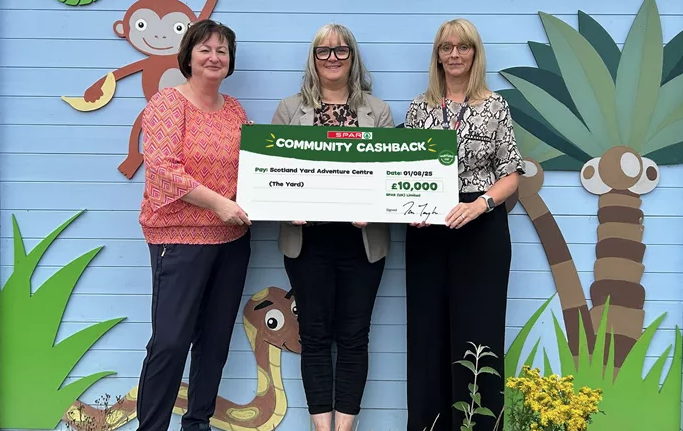Lisa Hilder, founder and director of Preston Road Women’s Centre in Hull and Affordable Justice explores how social enterprise models can help charities escape the funding treadmill and build lasting resilience.
__________________________________________________________________-
Income generation for charities is a constant worry, sometimes consuming a disproportionate amount of time and resource for a wide range of organisations – what are the ways in which it can be wrestled into a manageable and effective function so that the organisation can focus on its core aims and objectives?
One of the areas worthy of consideration is the utilisation of income generation schemes which are derived from social investment and social enterprise models.
Whilst this approach steps outside familiar tropes and traditional well worn pathways of drawing in resource, it can, and has, been used very successfully by some charities to complement or replace existing income streams, and indeed to build financial resilience for the organisations.
Two case studies in point operate in Hull at Preston Road Women’s Centre (PRWC) – an award-winning community anchor organisation delivering a range of services for women and children on the Preston Road Estate and beyond – extending to work throughout the UK.
Firstly, staff at PRWC identified the need for suitable accommodation for women and children fleeing domestic abuse, to enable them to leave abusive relationships and to rebuild their lives. Previously available options via the local authority and housing associations were rarely available, poorly located and generally inadequate. It then set about accessing capital grant and social investment loans in order to purchase and refurbish carefully selected properties of different sizes to accommodate women needing a new start. 15 years later, the organisation owns or operates 178 properties across the city of Hull with a balance sheet value of £17.6million and revenue streams which enable them to deliver a financially and operationally sustainable service to local women and children.
The organisation now works with charities across the UK, sharing its experience and expertise not only with other domestic abuse organisations but with any organisation for which the provision of accommodation is a key benefit to its service users.
Secondly, based in the same building, Affordable Justice is a not for profit social enterprise and charity family law firm registered with the Solicitors Registration Authority which offers low cost, high quality paid for legal advice and representation on matters such as child arrangements, specific issue orders, divorce and financial matters. Established in 2016, in response to the swingeing cuts to Legal Aid as a result of LASPO (Legal Aid, Sentencing and Punishment of Offenders Act 2012), the business model utilises qualified and specialist lawyers paid at competitive salaries to deliver high quality advice and advocacy for clients at less than a third of commercial high street prices – simply by minimising overheads and stripping out the eye-watering profits earned by commercial firms.
Affordable Justice provides a service throughout England and Wales using online consultations with clients and representation in online family court proceedings.
Both of these models enable the charity to have a level of autonomy and unrestricted income which allows focus to be directed towards service delivery, rather than the perennial draw towards grant and tender applications. Falling out of this is also the ability to extend planning horizons beyond the timeframe of short term revenue grant expiry, and this in turn brings with it stability for the workforce and workforce planning.
Whilst not a universal panacea for every charity, these models offer an attractive alternative for beleaguered organisations in the sector which are concerned with preserving and growing their services to meet ever increasing demand.
Latest News
-
Tributes paid to 'tenacious campaigner' who co-founded Terrence Higgins Trust
-
Man who set up fake animal charity jailed for five years
-
X-odus sparks video content boom among charities, report finds
-
Charity handed £25m endowment from autistic philanthropist to help others on the spectrum
-
Civil Society Covenant blighted by delays and U-turns, report warns
-
More than 30 jobs at risk as hospice charity looks to close home care service
Charity Times video Q&A: In conversation with Hilda Hayo, CEO of Dementia UK
Charity Times editor, Lauren Weymouth, is joined by Dementia UK CEO, Hilda Hayo to discuss why the charity receives such high workplace satisfaction results, what a positive working culture looks like and the importance of lived experience among staff. The pair talk about challenges facing the charity, the impact felt by the pandemic and how it's striving to overcome obstacles and continue to be a highly impactful organisation for anybody affected by dementia.
Charity Times Awards 2023
Mitigating risk and reducing claims

The cost-of-living crisis is impacting charities in a number of ways, including the risks they take. Endsleigh Insurance’s* senior risk management consultant Scott Crichton joins Charity Times to discuss the ramifications of prioritising certain types of risk over others, the financial implications risk can have if not managed properly, and tips for charities to help manage those risks.
* Coming soon… Howden, the new name for Endsleigh.
* Coming soon… Howden, the new name for Endsleigh.
Better Society

© 2021 Perspective Publishing Privacy & Cookies














Recent Stories